 In the midst of Women in Horror Month, acclaimed author S.P. Miskowski begins our interview by invoking the name of Frankenstein’s true creator to make a valid point about the month in question.
In the midst of Women in Horror Month, acclaimed author S.P. Miskowski begins our interview by invoking the name of Frankenstein’s true creator to make a valid point about the month in question.
“Women in Horror Month reminds me of the need for an extra effort to get readers interested in horror by writers who identify as women,” Miskowski said. “I find this odd since the genre was practically invented by Mary Shelley. But I think the overall effects of the annual celebration have been positive. Readers, editors, and publishers are introduced to new work by living writers they might not know. Having a special occasion like WiHM adds a much-needed spotlight, especially for small press writers who struggle to bring mainstream attention to horror fiction.”
Speaking of a spotlight, the horror community has been shining its beam on Miskowski’s work for nearly a decade. Her 2019 novel The Worst is Yet to Come and 2017 novel I Wish I Was Like You received Bram Stoker Award nominations for Superior Achievement in a Novel. She also earned Shirley Jackson Award nominations for her novel Knock Knock (2011) and for her novellas, Delphine Dodd (2012) and Muscadines (2016).
“I write because it’s my nature,” said Miskowski, a Decatur, Georgia native now living in Canada. “Storytelling has come naturally to me all of my life. I think all writers need some kind of recognition, even the reclusive ones. All writers are ambitious. Without ambition, we would never bother to write anything down. We would be content to dream up stories and then forget them.
“Writing is a form of communication, not just a form of expression. We want our stories to connect with other people. An award nomination can help, somewhat, by providing an occasion for people to mention your work. An award nomination can get your book title in front of more readers and editors. It’s an opportunity writers ought to enjoy while it lasts. Enjoy the moment and use it to sell books. If you know someone who’s nominated, celebrate and congratulate them. Tangible rewards are few and far between, in our field. What really matters in terms of community is being good to one another.
“Being nominated doesn’t prove your work is better than anyone else’s work but it indicates that there’s a niche and an audience for it, no matter how idiosyncratic your writing may be. If your book or story isn’t nominated, it’s still in good company with all of the works not included on what is, let’s face it, a very short list. Awards don’t confirm that a writer is ‘the best.’ They confirm that you’re doing something interesting and people have taken note. That’s lovely.”
Knock Knock and Delphine Dodd are two of the titles in her four-book Skillute Cycle, chronicling the evil in the backwater town of Skillute, Washington. What keeps her returning to Skillute, a town haunted by its past?
“Without being at all disingenuous, I’m not sure,” Miskowski said. “All of these books came about quite naturally. I didn’t write a series for commercial reasons, and I didn’t start out with the intention of creating this haunted world with its own rules and recurring imagery and connected events.
When Kate Jonez at Omnium Gatherum Media decided to publish Knock Knock, she asked me if I had a series in mind. I told her I didn’t, but I had notebooks full of material — sketches for side stories, brief biographies of characters that didn’t make it into the novel because they were not directly related to the main story. All of this extra stuff seemed to me to fit into three long stories: a prequel to Knock Knock (Delphine Dodd); a concurrent tale about one of the Knock Knock characters trying to escape her fate (Astoria); and a sequel that begins exactly where Knock Knock ends (In the Light). Each novella dances around the events of the novel but then spins out in other strange directions.
“After a novel and three novellas, I thought I was finished with the fictional town of Skillute. Then I was invited to submit a story to an anthology called Sisterhood (forthcoming from Chaosium). Immediately I had this vision of the childhood of a key character from Delphine Dodd, a doctor whose practices and clinic were based on a frightening historical figure. Dr. Graham developed out of my interest in the case histories of female serial killers. For the Sisterhood short story (‘The Resurrected’) I set aside my true crime books and invented a family and an upbringing that could have shaped my fictional doctor. How did she develop a method of treatment for young women that included starvation diets and physical abuse? ‘The Resurrected’ is an epistolary tale in which I imply an answer to that question, I hope without ruining the mystery of the novella.
 “My next book was set in Seattle in the early 1990s. It was a ghost story told in first person with second person POV interludes. I think I just needed to get the hell out of Skillute for a while. Also, around that time, several people I knew had begun to refer to my work generally as either folk horror or Southern Gothic. This is fine, all good, but it isn’t the only thing I do. So, I broke loose with I Wish I Was Like You. Different setting and slightly different style, and vastly different idiom and worldview — it set me free, in a way. More important, it was a story I needed to tell for all sorts of personal reasons. I never expected anyone to like it or find it as funny as I did. I was completely surprised by the book’s reception, and I’m still amazed when readers say they love it and find it hilarious. This is very gratifying.
“My next book was set in Seattle in the early 1990s. It was a ghost story told in first person with second person POV interludes. I think I just needed to get the hell out of Skillute for a while. Also, around that time, several people I knew had begun to refer to my work generally as either folk horror or Southern Gothic. This is fine, all good, but it isn’t the only thing I do. So, I broke loose with I Wish I Was Like You. Different setting and slightly different style, and vastly different idiom and worldview — it set me free, in a way. More important, it was a story I needed to tell for all sorts of personal reasons. I never expected anyone to like it or find it as funny as I did. I was completely surprised by the book’s reception, and I’m still amazed when readers say they love it and find it hilarious. This is very gratifying.
“Coming back to Skillute for two Journalstone/Trepidatio books (The Worst is Yet to Come in 2019 and The Best of Both Worlds in 2020), I had enough distance and perspective to imagine the town as urban dwellers might see it. For the novel, I thought of friends who had been priced out of Seattle, and their search for a less expensive way to raise their kids the way they had been raised. Whether or not this is possible or even desirable is something I deal with thematically. I remembered a friend from San Francisco who said, in 1995, she was going to wait for housing prices to drop before she invested $85,000 in a craftsman home in Seattle. Then we watched the same houses climb to an estimated value of $450,000. Today, they’re probably priced at nearly a million. What do families do in such a market? They move further out. So, this was my story for The Worst is Yet to Come.
“While writing the novel I did the same thing I’d done with Knock Knock. I kept notebooks full of extra material. Another storyline developed around the main action, but it took us too far afield. Eventually I realized this was another complete book, a novella about the opposite of the novel — the third- or fourth-generation families of Skillute. The adult brother and sister who emerged were observers of the newcomers, and their lives were connected to the former urban dwellers in odd ways. So, I decided to make the action in both books concurrent, with the story arcs leading to a violent convergence.
“Through no intention of my own I’ve written six books and a short story set in Skillute. And these disturbing tales keep suggesting new possibilities. To me, the essence of Skillute is that it can only be apprehended in fragments perceived over time. So, I’ll probably visit again — and again.”
Notable authors described Astoria, the third book in the Skillute Cycle, as “part Hitchcock, part David Lynch” and “a unique blend of The Omen and Elizabeth Berg’s The Pull of the Moon.” Which begs the question: Who and what inspire her unique style of writing?
“Hitchcock and Lynch are influences, certainly,” Miskowski said. “More recently I’ve been fascinated with the films of Jordan Peele, Jennifer Kent, and Oz Perkins, rooted in a world we recognize while the horror (much of it created by humans) unfolds around us. In the early 2000s I watched a lot of Japanese and South Korean horror films. These have been a big influence on my sense that you can tell a story of grief, longing, and domestic violence through the tropes of traditional horror.
“A couple of years ago I read Ryū Murakami’s short novel on which the Takashi Miike film Audition was based. I loved the deceptive simplicity of the style, the understated depiction of horrific violence. I’ve tried to accomplish something like this in my most recent Skillute books. I wanted no waste, and little repetition. Readers aren’t led by the nose or coddled; they have to accept the brevity of accelerated action. Terrible things occur and nothing is fully resolved. The extent of the damage precludes a happy ending.
“Over the years, the single biggest influence on my writing has been Shirley Jackson. She does such extraordinary things, and always with great wit and insight. The reader can pick up on her clues, or just ride along on this little adventure. If you do pick up the clues and examine them, she’s saying some pretty terrifying things about human nature.”
Besides writing acclaimed novels and novellas, Miskowski is also a talented short story writer, her work appearing in a long list of high-profile anthologies and magazines. “Alligator Point” was among the twenty-one stories featured in The Best Horror of the Year: Volume Ten.
“As a young writer I was only interested in short stories,” Miskowski said. “I read novels but had no intention of ever writing one. I was a student when Donald Barthelme was still alive. I watched him read from his work, one time. The room was set up for over a hundred people. That afternoon an uncharacteristic downpour scared away the intended audience. I think there were about twenty of us, in this enormous room with an echo. Well, he was brilliant — absolutely unfazed by the turnout and really mesmerizing. Back then I was mostly interested in form and structure. People who discussed my stories in workshop said they were cold, but I was learning what was possible, so I didn’t take an interest in the characters’ heartfelt desires and losses until much later.”
Since Horror Tree is a site that supports authors with markets and writing advice, I asked Miskowski to share a tip to help writers along their journey.
“The note to take seriously is the very specific one that underscores what you already suspected,” Miskowski said. “You have the answers in your head. You are the story. No one can fix the story for you or tell you how to write or why to write. Do it for you, first, but be merciless. Don’t tell yourself how talented you think you are. The story matters more than any attention it might bring.”
Miskowski’s next book, The Best of Both Worlds, is scheduled for release on May 1 by Journalstone/Trepidatio.
“And I’m revising a new novel set in a suburb thrown off-kilter by the rivalry between two women who were once best friends,” Miskowski said. “When it’s done, we’ll see if it’s any good.”
I asked Miskowski what her worst fear is. She shared a dream instead.
“I would never tell anyone my worst fear,” Miskowski said. “But I’ll tell you about one of my most upsetting dreams. I was visiting with friends, just wandering around in the city. We separated and I found myself standing on a patio outside a shop. I turned around and saw my husband, who was also sort of wandering around with friends. We greeted one another and I could tell by his expression and his manner — he didn’t love me anymore. I don’t know what had occurred between us, but it was as if we’d broken up, and on this particular day we had run into one another by accident, and all of the love we had shared was gone. He wasn’t angry, just friendly in that casual, indifferent way that indicates you don’t spend time thinking about the other person. This was the saddest and most disturbing dream I can remember.”
LINKS:
Website: https://spmiskowski.wordpress.com/about/?fbclid=IwAR3R30adF2LbuGuXI8m0f7IUcra3evGlQhQ7t-DD0IqmL1l6blZ-WWLbzlg
Amazon Page: https://www.amazon.com/S-P-Miskowski/e/B002GG88ZA?ref=sr_ntt_srch_lnk_1&qid=1581656077&sr=1-1
Twitter: @SPMiskowski
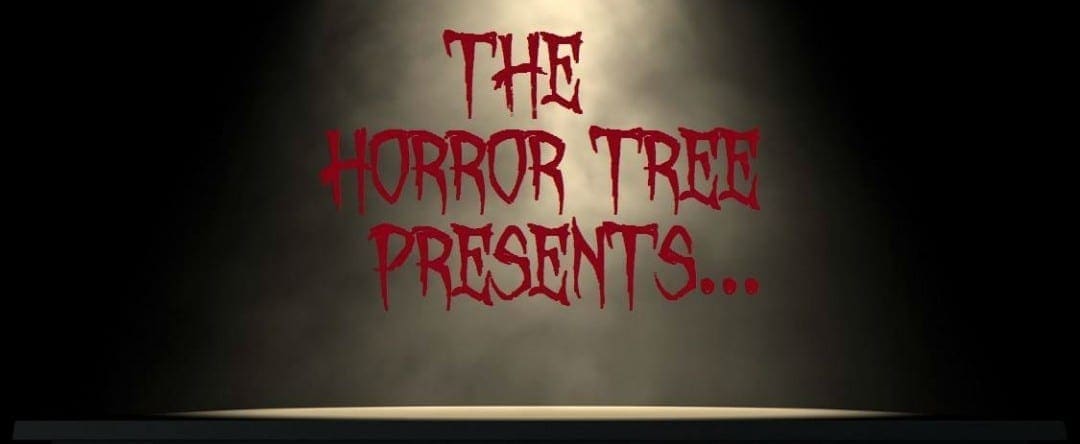
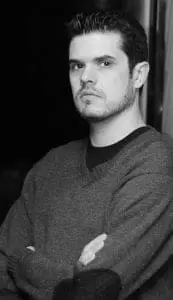 New Jersey horror author Tim Meyer is a self-professed “coffee connoisseur” and “beer enthusiast” who likes his coffee like he likes his beer.
New Jersey horror author Tim Meyer is a self-professed “coffee connoisseur” and “beer enthusiast” who likes his coffee like he likes his beer.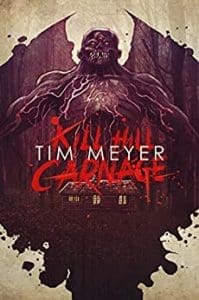 Released April 16 by Poltergeist Press, Dead Daughters is about the Lowery family, who are living the American dream in New Jersey. However, a blank envelope in the mail upends their ideal life.
Released April 16 by Poltergeist Press, Dead Daughters is about the Lowery family, who are living the American dream in New Jersey. However, a blank envelope in the mail upends their ideal life.

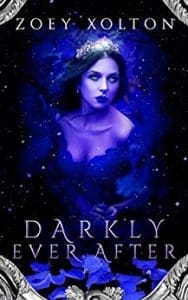 Australian author Zoey Xolton begins her debut collection
Australian author Zoey Xolton begins her debut collection 
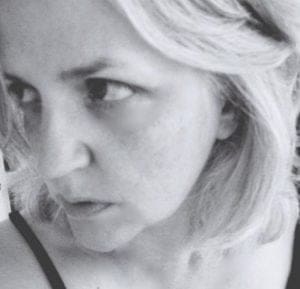 In the midst of Women in Horror Month, acclaimed author S.P. Miskowski begins our interview by invoking the name of
In the midst of Women in Horror Month, acclaimed author S.P. Miskowski begins our interview by invoking the name of 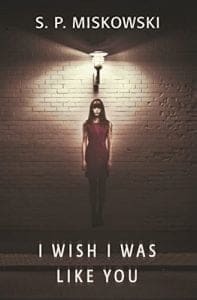 “My next book was set in Seattle in the early 1990s. It was a ghost story told in first person with second person POV interludes. I think I just needed to get the hell out of Skillute for a while. Also, around that time, several people I knew had begun to refer to my work generally as either folk horror or Southern Gothic. This is fine, all good, but it isn’t the only thing I do. So, I broke loose with
“My next book was set in Seattle in the early 1990s. It was a ghost story told in first person with second person POV interludes. I think I just needed to get the hell out of Skillute for a while. Also, around that time, several people I knew had begun to refer to my work generally as either folk horror or Southern Gothic. This is fine, all good, but it isn’t the only thing I do. So, I broke loose with  Jessica McHugh is the author of more than 20 books, including an edgy young adult series, The Darla Decker Diaries, and acclaimed novels The Green Kangaroos and Rabbits in the Garden. She’s appeared in high-profile anthologies alongside names like Jonathan Maberry and Jack Ketchum.
Jessica McHugh is the author of more than 20 books, including an edgy young adult series, The Darla Decker Diaries, and acclaimed novels The Green Kangaroos and Rabbits in the Garden. She’s appeared in high-profile anthologies alongside names like Jonathan Maberry and Jack Ketchum.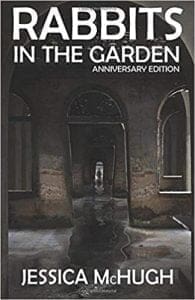 “It’s really quite amazing how grief changed me,” McHugh said. “I mean, not beneficially as an author sometimes, but it’s still pretty fascinating how losing him affected my brain chemistry. Grief stole from me a certain spark I’ve never quite been able to regain. It also caused my hands to shake, and I began having bad panic attacks. It was really bad for a while, as Tyler was incredibly tied to my writing life.
“It’s really quite amazing how grief changed me,” McHugh said. “I mean, not beneficially as an author sometimes, but it’s still pretty fascinating how losing him affected my brain chemistry. Grief stole from me a certain spark I’ve never quite been able to regain. It also caused my hands to shake, and I began having bad panic attacks. It was really bad for a while, as Tyler was incredibly tied to my writing life.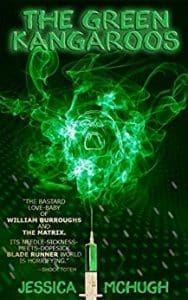 “The Green Kangaroos was directly inspired by my brother, who’s an addict and middle child like Perry Samson,” McHugh said. “And while the familial relationships are altered, there are some deep pockets of personal pain in that novel. It was also, oddly, the most fun I’ve ever had writing a novel.
“The Green Kangaroos was directly inspired by my brother, who’s an addict and middle child like Perry Samson,” McHugh said. “And while the familial relationships are altered, there are some deep pockets of personal pain in that novel. It was also, oddly, the most fun I’ve ever had writing a novel.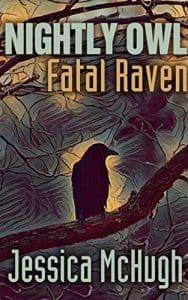 The Green Kangaroos
The Green Kangaroos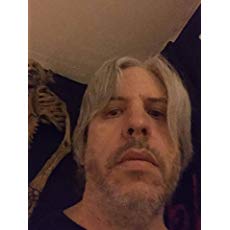
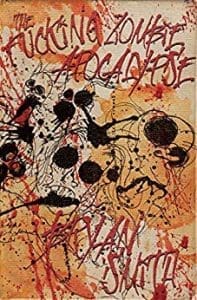
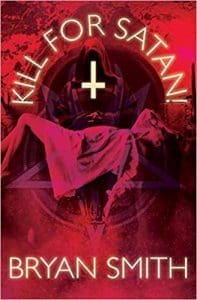
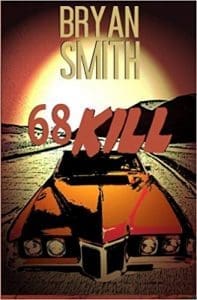
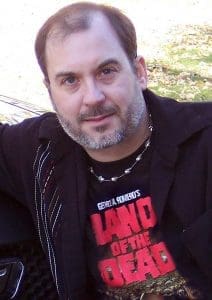 In 2010, the old Leisure Books horror club sent me a book titled The 13th by John Everson. The plot centered around an abandoned resort hotel that started showing signs of life after a century of neglect. What I discovered inside those walls was terrifying. The book, especially the ending, remains an all-time favorite and vaulted Everson onto my list of favorite horror authors.
In 2010, the old Leisure Books horror club sent me a book titled The 13th by John Everson. The plot centered around an abandoned resort hotel that started showing signs of life after a century of neglect. What I discovered inside those walls was terrifying. The book, especially the ending, remains an all-time favorite and vaulted Everson onto my list of favorite horror authors.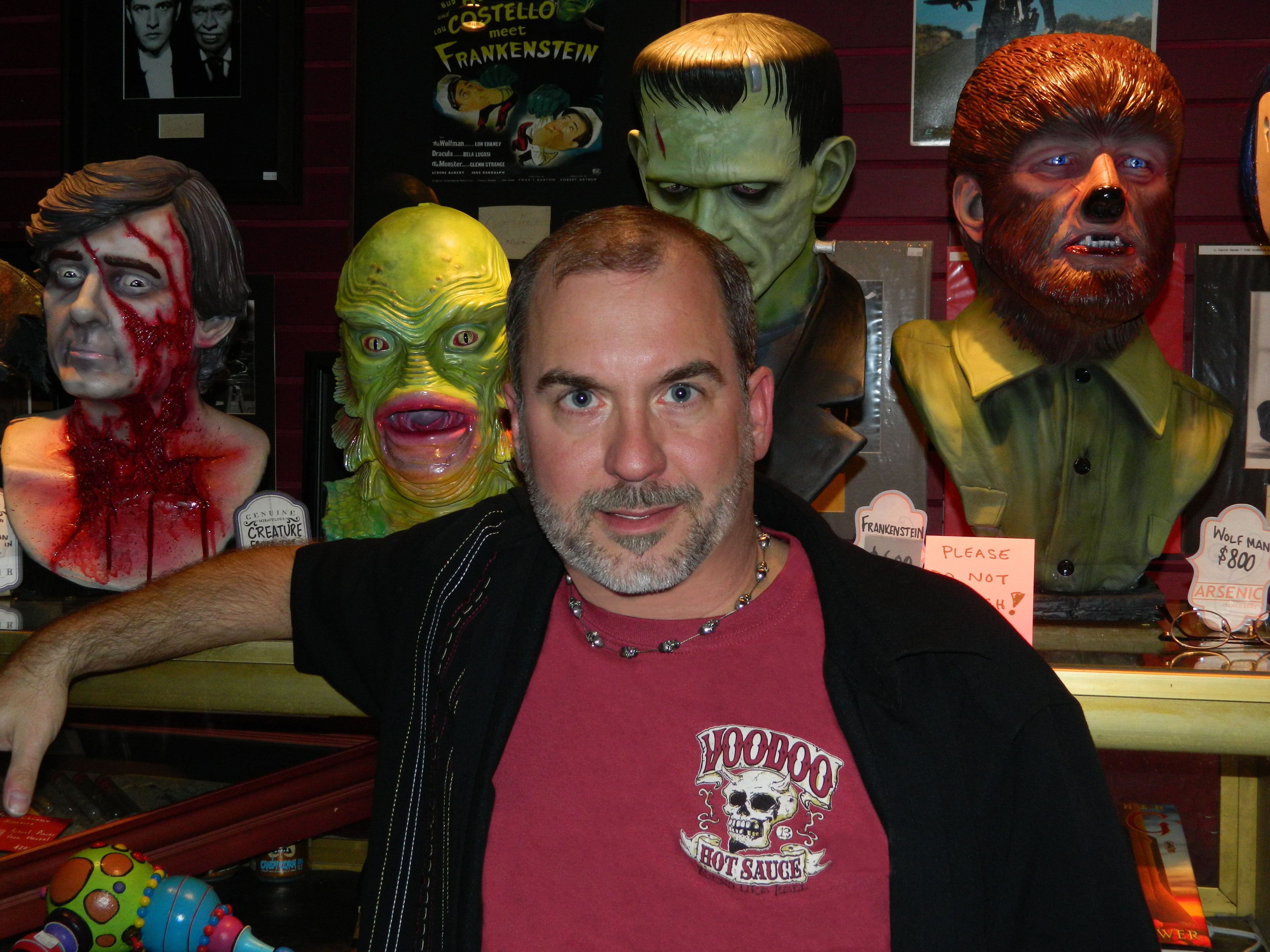
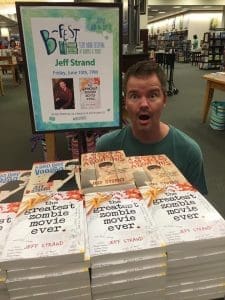 I first discovered Jeff Strand in 2010 when a novel titled Dweller arrived in my mailbox as part of the monthly Leisure Books horror club back in the day.
I first discovered Jeff Strand in 2010 when a novel titled Dweller arrived in my mailbox as part of the monthly Leisure Books horror club back in the day.







